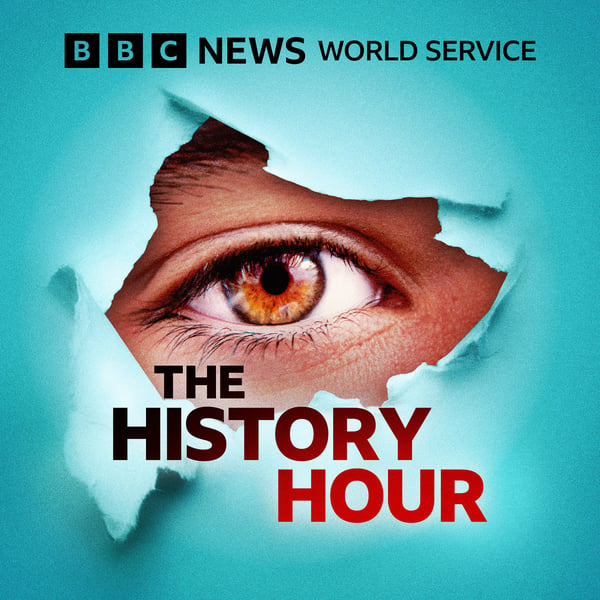Plastics in oceans and sea cucumbers
The History Hour
BBC
4.4 • 879 Ratings
🗓️ 14 January 2023
⏱️ 52 minutes
🧾️ Download transcript
Summary
Max Pearson presents a compilation of this week's Witness History programmes from the BBC World Service.
You'll hear the story of how a marine biologist made a shocking discovery finding small bits of plastics floating thousands of miles of the east coast of America.
Then, marine biologist Christine Figgener talks about the history of oceans.
Also, the world's first transatlantic concert, a dispute over sea cucumbers in the Galapagos Islands, the world's first tidal power station and the first woman to win a Olympic windsurfing gold medal.
(Photo: Garbage on beach. Credit: Getty Images)
Contributors: Edward Carpenter - Marine biologist John Liffen - Curator emeritus at the Science Museum in London Marcos Escaraby - Fisherman in the Galapagos Islands Alan Tye - Conservationist Marc Bonnel - Brittany historian Babara Kendall - Windsurfing champion
Transcript
Click on a timestamp to play from that location
| 0:00.0 | All episodes of My Indian Life, seasons one to three, are available to binge in full right now. |
| 0:06.0 | That's Kalki presents My Indian Life from the BBC World Service. |
| 0:11.0 | Just search for My Indian Life life wherever you found this podcast. |
| 0:17.0 | Hello and welcome to the History Hour Podcast from the BBC World Service with me Max Pearson |
| 0:25.5 | the past brought to life by those who were there and this week we're focused offshore |
| 0:30.4 | we have a conflict over sea cucumbers of the Galapagos. |
| 0:34.0 | I agree that there are pristine areas where we need to look carefully at whether fishing is |
| 0:38.6 | destroying the ecosystem or not. But we fishermen need to catch fish. That's what we do. That's how we make a living. |
| 0:46.0 | Also, windsurfing made its Olympic debut in the 1990s. We have the first female gold medal winner. |
| 0:52.1 | Plus we have some technological positives from the oceans like tidal power, |
| 0:56.0 | and Paul Robeson on the first transatlantic cable. |
| 0:59.0 | Hello? |
| 1:00.0 | Hello Paul, can you hear me? Yes I can. Oh wonderful. Well come all right. Oh I can't tell you. That's wonderful. |
| 1:08.8 | That's coming up later in the podcast. We're also going to be looking at the |
| 1:16.2 | health of the world's seas and here the history is not so rosy. One of the main |
| 1:21.6 | sources of concern to have emerged in recent decades is the prevalence of plastic waste in the oceans. |
| 1:27.9 | Plastics are everywhere and they have created major problems for a vast range of life forms. |
| 1:33.0 | Alex Collins has spoken to a scientist who first recognized the problem |
| 1:36.0 | and had to fight to get the scientific community to take his concerns seriously. |
| 1:41.0 | Plastics are in the sea ice in the Arctic at the top of Mount Everest. In the |
| 1:50.8 | Himalayas they are in table salt, it's in our drinking water, it's in our bloodstream, it's in human excrement. |
| 2:00.0 | That's Edward Carpenter. Back in September 1971, he was thousands of miles out in the Atlantic |
... |
Please login to see the full transcript.
Disclaimer: The podcast and artwork embedded on this page are from BBC, and are the property of its owner and not affiliated with or endorsed by Tapesearch.
Generated transcripts are the property of BBC and are distributed freely under the Fair Use doctrine. Transcripts generated by Tapesearch are not guaranteed to be accurate.
Copyright © Tapesearch 2025.

